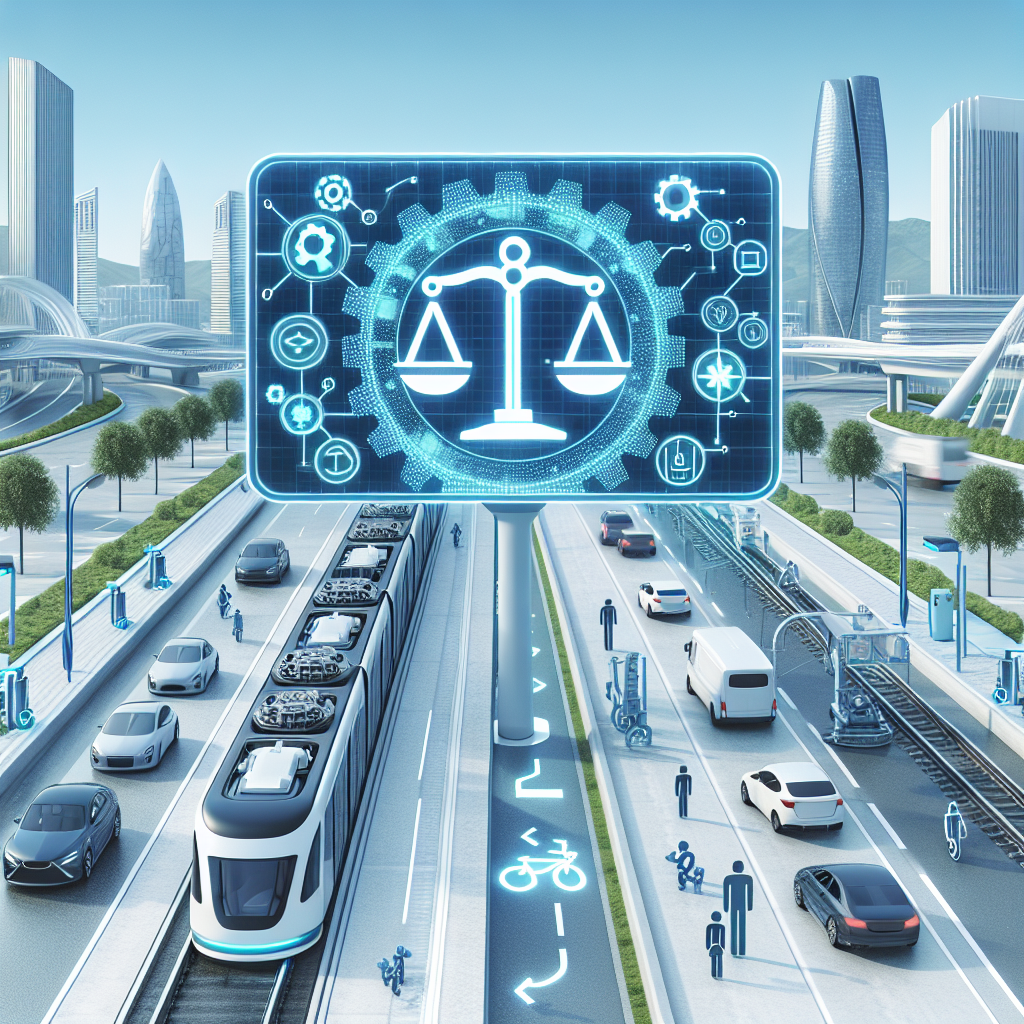Artificial intelligence (AI) has revolutionized the way we live and work, including in the transportation sector. From self-driving cars to traffic management systems, AI has the potential to make transportation safer, more efficient, and more convenient. However, the use of AI in transportation also raises ethical concerns, particularly around issues of safety, privacy, and equity. Ensuring that AI is used ethically in transportation systems is crucial to building public trust and maximizing the benefits of this technology.
One of the key ethical considerations in the use of AI in transportation is safety. Self-driving cars, for example, rely on AI algorithms to make decisions about how to navigate traffic and respond to unexpected situations. Ensuring that these algorithms are accurate, reliable, and safe is essential to preventing accidents and protecting the lives of passengers, pedestrians, and other road users. This requires thorough testing, validation, and oversight of AI systems to ensure that they meet high safety standards.
Another ethical concern in the use of AI in transportation is privacy. Many AI-powered transportation systems collect and analyze large amounts of data about individuals, such as their travel patterns, preferences, and behaviors. This data can be used to improve the efficiency of transportation services, but it also raises concerns about privacy and data security. Ensuring that data is collected, stored, and processed in a transparent and secure manner is essential to protecting individuals’ privacy rights and preventing misuse of their personal information.
Equity is also a key ethical consideration in the use of AI in transportation. AI systems have the potential to improve access to transportation services for underserved communities, such as people with disabilities, low-income individuals, and rural residents. However, there is a risk that AI systems could exacerbate existing inequalities by favoring certain groups over others or by excluding marginalized communities from access to transportation services. Ensuring that AI systems are designed and implemented in a way that promotes equity and inclusivity is crucial to ensuring that the benefits of AI in transportation are shared by all members of society.
To ensure ethical AI in transportation systems, stakeholders must work together to develop and implement clear ethical guidelines and standards for the use of AI in transportation. This includes government regulators, industry stakeholders, researchers, and advocacy groups collaborating to establish best practices for the design, development, and deployment of AI systems in transportation. It also requires ongoing monitoring and evaluation of AI systems to ensure that they comply with ethical standards and address any emerging ethical concerns.
Frequently Asked Questions (FAQs)
Q: How can we ensure that AI systems in transportation are safe?
A: Ensuring the safety of AI systems in transportation requires rigorous testing, validation, and oversight. This includes thorough testing of AI algorithms in simulated and real-world environments, as well as ongoing monitoring and evaluation of AI systems to identify and address any safety risks.
Q: What measures can be taken to protect individuals’ privacy in AI-powered transportation systems?
A: To protect individuals’ privacy in AI-powered transportation systems, data should be collected, stored, and processed in a transparent and secure manner. This includes implementing strong data security measures, obtaining individuals’ consent for data collection and use, and providing clear information about how data will be used and shared.
Q: How can AI systems in transportation be designed to promote equity and inclusivity?
A: AI systems in transportation can be designed to promote equity and inclusivity by considering the needs and preferences of diverse communities and ensuring that transportation services are accessible to all members of society. This includes designing AI systems with input from marginalized communities, providing affordable and accessible transportation options, and addressing barriers to transportation access for underserved populations.
In conclusion, ensuring ethical AI in transportation systems is essential to maximizing the benefits of AI technology while minimizing its risks and potential harms. By addressing issues of safety, privacy, and equity, stakeholders can build public trust in AI-powered transportation systems and ensure that these systems contribute to a more sustainable, inclusive, and efficient transportation ecosystem. Collaboration between government regulators, industry stakeholders, researchers, and advocacy groups is key to developing and implementing ethical guidelines and standards for the use of AI in transportation, and ongoing monitoring and evaluation of AI systems is necessary to address emerging ethical concerns and ensure that AI technology is used responsibly and ethically.

